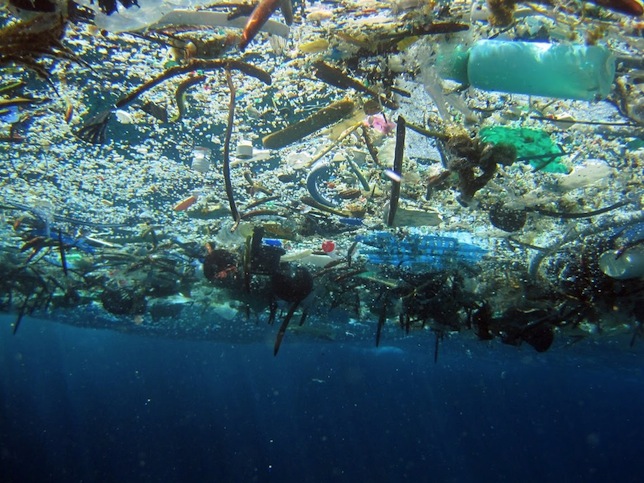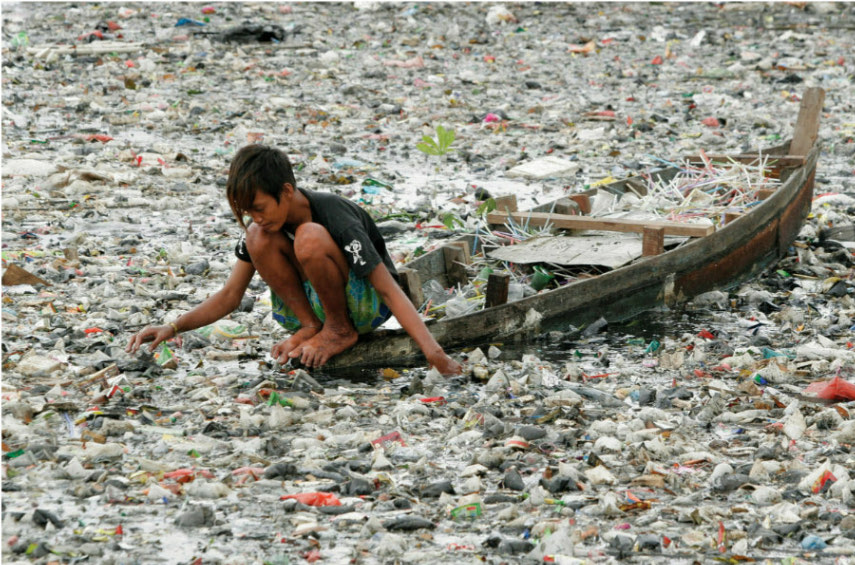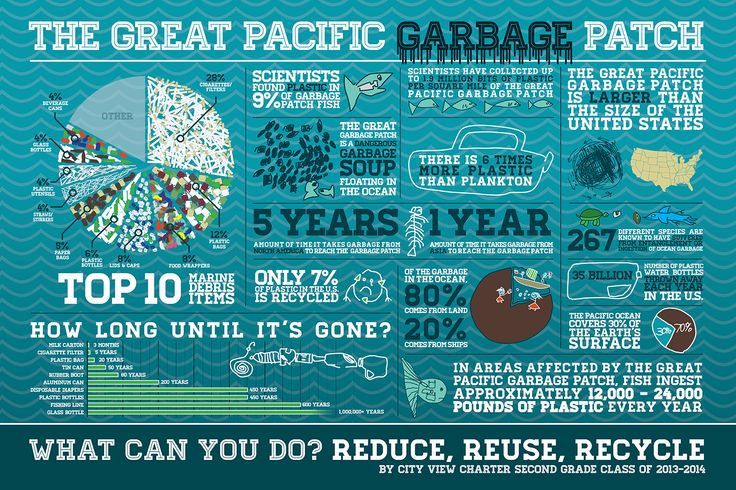
There is a popular saying that “there is no ‘away,’” and certainly, when it comes to oceans and plastic, this seems to be the case; 8 million tons of plastic worldwide ends up in the ocean each year. Every ocean in the world has at least one “garbage patch.” And unless we change our ways soon, scientists warn this amount may quadruple by 2025.
But here is where things get a little weird: the gigantic flotillas of trash in each ocean account for about 35,000 tons of plastic, less than one percent of the total believed to be polluting our oceans. In fact, until the University of Georgia team published their study last February, no one had attempted to quantify this since the 1970s.
Some scientists have long feared the havoc plastic could wreak upon the oceanic food chain, both due to the way plastic photodegrades or breaks down into small pieces in sunlight, and is frequently manufactured in “microbead” form for face washes and exfoliating products. These small bits of plastic mimic the size and shape of fish eggs, and could accumulate in plankton, which is then eaten by salmon and larger creatures.
Unfortunately, a study by the Coastal Ocean Research Institute in British Columbia published last June confirmed for the first time plankton are ingesting plastics in the ocean, not just in laboratories.
“We’re concerned, obviously, that this is a way in which even if you’re a salmon and you don’t deliberately target a piece of plastic, you’re going to get exposed as a result of feeding on zooplankton,” said study co-author Peter Ross in an interview with ThinkProgress.
Ross’ team caught plankton eating tiny bits of plastic on camera for the first time.
To date, seven states in the U.S. have banned microbeads. Unfortunately this only addresses part of the problem, as over 25 percent of the plastic washed out to the ocean originates from China. If only there were an international conference where policy makers could craft legally-binding agreements to solve this and other environmental catastrophes….and of course we can each do our bit by shopping conscientiously and recycling our plastic waste, especially as the gift-giving season draws near.
This Article (An Ocean of Garbage) is free and open source. You have permission to republish this article under a Creative Commons license with attribution to the author and AnonHQ.com.






It’s Monsanto who have the brevet for this plankton.
Monsanto do new o.g.m,the plankton eater of plastic.YES WE CAN.
YES,WE CAN cleaning ocean with the new plankton of MONSANTO.